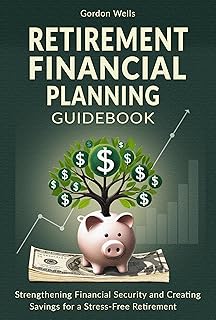Peter, a veteran in the mining industry, had hoped to retire comfortably after over two decades of hard work. However, his dreams were shattered when his financial adviser convinced him to invest a significant portion of his superannuation savings in the now-collapsed First Guardian investment fund. Allegations of misconduct and misleading practices surrounding the fund led to its demise earlier this year, leaving Peter in financial ruins.
The collapse of First Guardian is just one instance that sheds light on the broader issues within the financial advice sector of superannuation. Advocates are pushing for stricter regulations to protect consumers from receiving poor advice and falling victim to questionable sales tactics. Peter’s case serves as a stark reminder of the devastating impact of inadequate financial advice on individuals nearing retirement.
Jessica Spence, Director of Advocacy at Super Consumers Australia, expressed surprise at the risky investment advice Peter received, emphasizing the need for better consumer protections. Financial experts like Phil Anderson from the Financial Advice Association of Australia agree that Peter’s situation reflects a failure in providing sound financial guidance, calling for adherence to existing laws and safeguards to prevent such occurrences in the future.
Recent collapses of various investment schemes have resulted in substantial losses for thousands of investors, prompting calls for regulatory reforms. Proposed changes to financial advice rules, including reducing obligations on advisers and introducing lower-qualified advisers, have raised concerns among advocates about potential negative impacts on consumers.
Andy Darroch, an independent financial adviser, highlighted the prevalent conflicts of interest within the industry, where financial advice often prioritizes fees over clients’ best interests. The rise of cold calling and loopholes in regulations further compound the risks faced by unsuspecting consumers, urging authorities to address these issues promptly.
ASIC’s efforts to warn consumers about high-risk investments and deceptive practices underscore the urgent need for stronger safeguards. The Compensation Scheme of Last Resort, established post the banking royal commission, aims to provide redress to victims of financial misconduct. However, challenges in funding and sustainability pose concerns for the financial services industry.
Super funds, like the one Peter invested in, play a crucial role in ensuring the integrity of investment products offered to members. The responsibilities of trustees and the need for stringent oversight to safeguard investors have come under scrutiny. The complex web of players involved in financial advice, from cold callers to fund managers, requires thorough investigation to prevent future mismanagement.
As Peter grapples with the loss of his retirement savings and dwindling prospects, his story serves as a cautionary tale for others navigating the financial landscape. The uncertainty surrounding the outcome of his complaint and potential compensation underscores the challenges faced by individuals betrayed by the system.
Ultimately, Peter’s ordeal underscores the critical need for enhanced consumer protections, stricter regulations, and ethical practices within the financial advice industry. The quest for justice and accountability for those impacted by negligent advice remains a pressing issue that demands immediate attention.
📰 Related Articles
- Fraud and Corruption Unveiled: Hong Kong IPO Scandal Exposes Financial Misconduct
- Superannuation Guarantee Increase to Boost Australians’ Retirement Savings
- SuperGuide: Maximizing Retirement Savings Through Informed Super Fund Choices
- SuperGuide Empowers Smart Retirement Planning for Financial Security
- Preservation Age in Australia: Retirement Flexibility and Financial Planning





